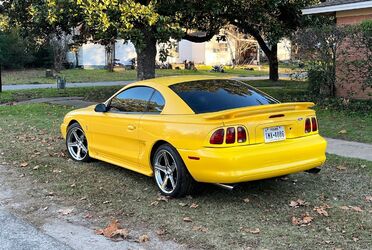By Bob Bondurant (5/5/2001)
One of the most important factors in vehicle performance is balance. The tires, steering and chassis act as monitors, providing continuous feedback to the driver. Other "sensory probes," such as seating and steering wheel position, give the driver a complete sense of the vehicle's traction, but those monitors send the first signals of trouble.
Proper maintenance is crucial to the performance of any vehicle and to ensuring those monitors are performing properly. Regular maintenance often equals fewer problems, more enjoyable driving, and savings for your pocketbook since costly repairs caught early can be kept to a minimum.
If you're mechanically inclined at all, try to do as much of the maintenance as you can. If your knowledge is limited in this area, you'll be surprised how much you can learn by taking a class at your local community college. The more you know about your car and its inner workings, the more confident you'll be on the road.
Before you get down to business and begin working on your car, be sure you have the necessary tools properly laid out in a well-lighted, comfortable working area. Set your priorities and work accordingly, always keeping in mind those areas that might adversely affect the safety of your vehicle. Occasionally checking every nut and bolt is important on a street vehicle; however, checking these items is essential after, and then again prior to, any race you're participating in.
Check fluid levels, re-torque lug nuts, make sure tire pressures are correct, and ensure the tread is wearing evenly across the tire. Remember to concentrate on things affecting your car's reliability first, and then, and only then, provide modifications to its performance.
A properly maintained vehicle is important regardless of whether it runs on the track or the street. We must depend on it to react to situations in the same fashion time after time; however, it can only do so with regular maintenance and preparation. By doing your own work or closely examining work being performed by another, you'll understand your vehicle better and can trust it more completely.
Believe it or not, cleanliness is also part of the maintenance program. Don't let dirt build up on the engine since this can make spotting a problem more difficult. Personally, I like to paint my engine compartments and chassis gray - it makes problem areas like a crack in the chassis or an oil leak easy to spot.
If you're interested in learning more about race car preparation, I recommend books written by Carroll Smith, Shelby's crew chief for the factory Cobra and GT-40s: Prepare to Win, Tune to Win, and Engineer to Win. These are excellent sources of maintenance information.
With anything worthwhile, getting to know your car takes time and effort. But it does pay off - when you trust your car and its preparation, it'll put you miles ahead, both on the street and the track.
Bob Bondurant, racer and entrepreneur, owns and runs the Bob Bondurant School of High Performance Driving in Phoenix, Ariz. For more information on classes and schedules, click over to www.bondurant.com or call (800) 842-RACE (7223).




